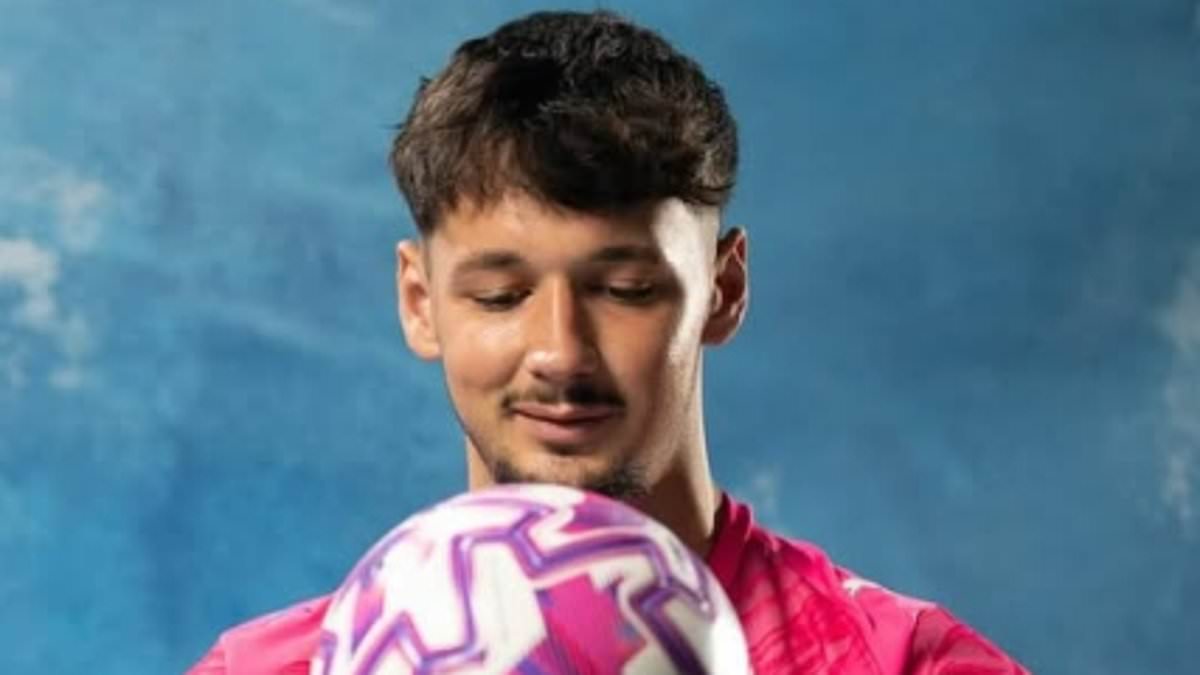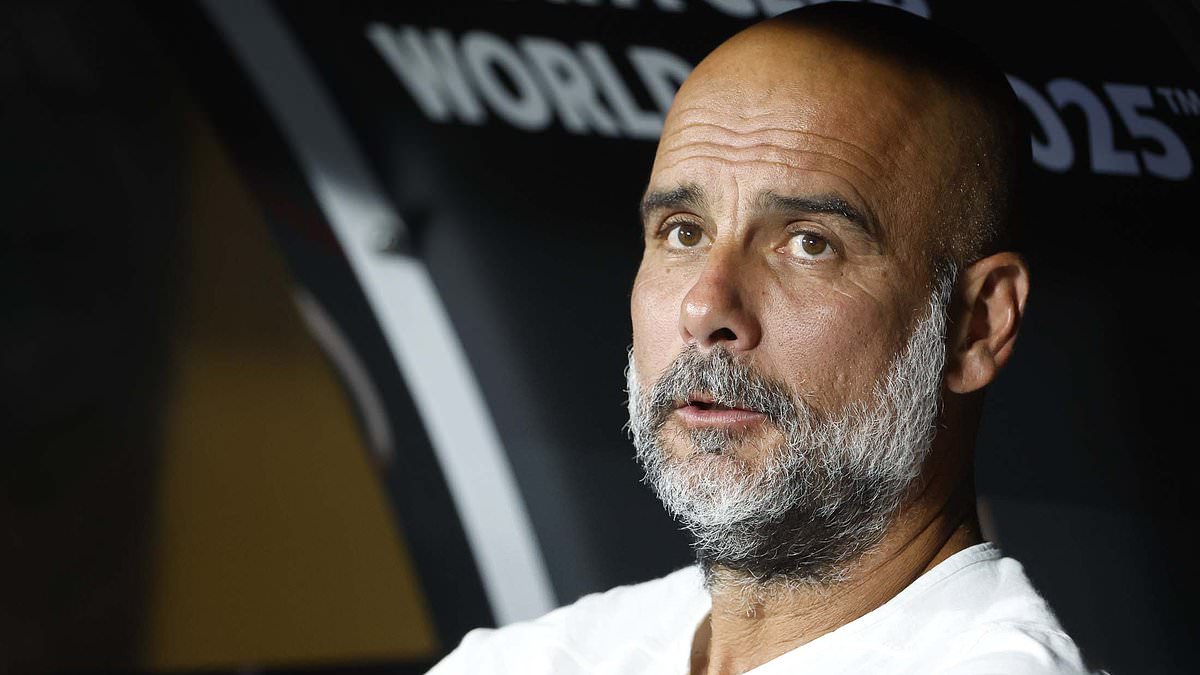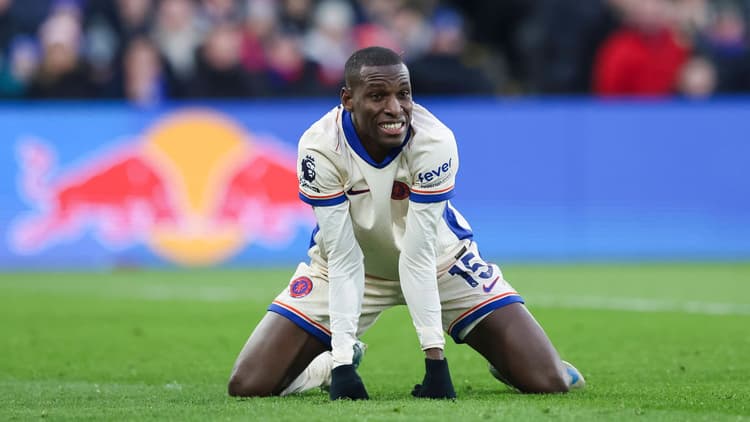Manchester City’s academy stars could have been mistaken for hugging each other along the Athens coastline. In reality, it wasn’t nearly that friendly. On the beach, a 13-year-old James Trafford was teaching his team-mates how to Cumberland wrestle.
Arms locked behind your opponent, chin resting on the shoulder. And go. Flip them into the Greek sand. Staff on that trip to the Elite Neon Cup youth tournament still talk about Trafford’s clinic in the Mediterranean heat.
He’d only been at City for about 12 months, had battled homesickness, but was coming into his own. Finding his feet, which is pretty handy at a club where goalkeepers are placed under so much pressure to play the Pep Guardiola way through the age groups.
The world is at them now. Eventually City’s No 1? Almost certainly, something Trafford has predicted in the past to surprised inquisitors. England’s No 1? Hard to argue with that in his future either.
At almost two metres – 6ft 6in – tall, here stands a 22-year-old who packed up his house at least once over the past year because a move to Newcastle from Burnley appeared so close.
A young man with eyes fixed on Ederson, eyes fixed on Jordan Pickford, with unshakeable confidence, an immovable assurance in himself. The farmer’s son, from little Greysouthen – with its population of 600 – who has herded all competition until this point.
James Trafford arrives at Man City this summer with plans to be No 1 for club and country
He was at City as a child (pictured in 2015) before going on to grow his game elsewhere
‘The notion of a boy from our county leaving a farm to go to one of the biggest clubs in the world is hard to comprehend,’ Trafford’s coach at Carlisle, Ben Benson, tells Daily Mail Sport. ‘We’re out on a limb.’
Trafford’s first coach at Cockermouth, Mike Brelsford, says: ‘I don’t think the rest of England know we exist up here!’
They do though. Dean Henderson is Carlisle alumni, his move to Manchester United in 2011 apparently alerting scouts head up there to look at goalkeepers more often and benefitting a teenage Trafford. Whitehaven’s Scott Carson passed in the opposite direction to Trafford at City this summer. Ben Stokes spent his teenage years in Cockermouth, five miles from the Trafford farm, run by dad James Snr and mum Alison.
A rugby area, it’s produced a few sportsmen decent with their hands. It’s now nurtured a goalkeeper worth £27million too.
There is a little conjecture about that fee between City and Burnley. The sellers are calling it £31m, which factors in a 20 per cent sell-on clause inserted when they purchased him from City two years ago. Some of that percentage has been discounted from this transfer to arrive at £27m.
Even if that £4m discrepancy is the difference between a British record or not, it remains a lot of money for an uncapped international.
The seed of leaving Turf Moor was planted on March 30, 2024.
Vincent Kompany, to quote a source at Burnley, ‘chucked Traff in the freezer’ for a game at Chelsea. Dropped without explanation as they battled Premier League survival. Trafford never played for Kompany again.
Daily Mail Sport got the inside track of what Trafford (middle) was like in City’s academy
Last season with Burnley, Trafford was outstanding, winning promotion with 29 clean sheets
The manager jumped ship for Bayern Munich in the summer – a move that reduced chairman Alan Pace to tears – and, despite Newcastle’s persistence, Burnley clung on to their goalkeeper.
Scott Parker did some serious work in sorting his head out and from that moment, Trafford is said to have cracked on with things.
‘If he’d completely checked out then he played a good poker hand,’ another source says.
But even when breaking the Championship record in recording 12 consecutive clean sheets, and only conceding 16 goals all season in their promotion, Parker knew his No 1 had a hankering for St James’ Park.
City had kept a close eye on the academy graduate who joined them from Carlisle at 12 but were not at the table last year.
Earlier this summer, sources began to tentatively suggest that they may firm up interest were Ederson or Stefan Ortega to leave. As it stands, both remain but City’s hand was forced.
When confiding why City almost always include buyback options or matching rights in sales of academy stars to Daily Mail Sport, former executive Omar Berrada once held up Trafford as the perfect example.
And Berrada is proven right, Trafford became only the second player they have exercised an option on – in this instance the matching rights. When Newcastle bid, City moved. And once City came in, things changed.
Trafford (right) grew up on a farm and that led to him feeling homesick as a younger player
He has matured a lot in recent years and is now determined to solidy himself as City’s No 1
‘There was a decision to make,’ says Trafford after featuring for 45 minutes of Saturday night’s friendly win over Palermo.
‘I wasn’t surprised when they came in. When they did, I thought “OK, sound”. City was the right fit for me and it’s why I chose them.
‘It’s been mad. I’ve been at the club for about two weeks now and it’s been brilliant getting back in and seeing everyone again, settling back in.’
Read More
Pep Guardiola’s clues for the opening day: THINGS WE LEARNED from Man City’s 3-0 win vs Palermo
‘Home’ is how Trafford describes Manchester City. Yet he struggled to settle with a first set of house parents a decade earlier and took some time to settle, 137 miles south of the farm.
‘The lifestyle is so different,’ says Adam Temple, his coach at City for the first two years. ‘It’s a big challenge. I’d never say it was a problem but we’d say ‘have this weekend off’ and go home.’
When City’s Under 13s played on Sundays – and when Trafford was picked in rotation ahead of Cieran Slicker, now at Ipswich – he would head for Cumbria on a Friday afternoon and come back for the match. It allowed for a period of acclimatisation. Trafford chose City over Manchester United and, ironically, Newcastle, because of their full-time programme but with that came sacrifices.
Heading back to North Cumbria for spells helped him enormously for somebody who had struggled with nerves as a kid.
‘I saw him last summer and he reminded me that I used to have to talk him into playing and get him relaxed,’ Brelsford says.
‘I’d forgotten that. He was really shy. He was back for a music festival last year, got some footballs out of the back of his car and was playing with a load of young kids. He blends in.’
One former coach of Trafford described him as playing ‘like an octopus’ as a goalkeeper
Trafford (far right, back) became only the second player Man City have ever exercised an option on having inserted a matching rights clause into his initial sale
Trafford is close with sister Charlotte, the pair of them winning best Ram Lamb among local young farmers in 2008.
Trafford was driving tractors long before earning a driving licence. He was lambing at 11, mucking out, knowing how much lime to stick in manure to hit the right acidity. People who have worked with him in football say he’s as happy holding a very serious conversation about machinery (and the NFL’s Cincinnati Bengals) as the game at the weekend. He owns the family trait of saluting to magpies.
Eventually, Trafford would live next to defender Eric Garcia and close to Oscar Bobb at the City Football Academy, his room overlooking a first-team training pitch.
Coaches would wave up to him when stood in the window. The young talents, those living away from home, would play pool and ping pong in there and watch the big Champions League nights on the communal television.
His performances were exemplary. City knew what they were getting, Trafford having trained with England’s development group while still at Carlisle, but it didn’t make stand-out moments any less impressive.
‘Traff was a bit unpolished, you saw this kid who’d fly around making saves,’ Temple says.
‘He had this knack of making ridiculous saves. We were at a tournament in Paris and he made probably the best save I’ve ever seen in academy football.
‘We’re playing Juventus, the kid’s turned, unbelievable strike. You’re ready to clap the goal and he flew from nowhere, plucking it from the top corner. He had that bit (extra). The personality that he had meant mistakes didn’t affect him, he was brave, he’d go again.’
As a kid, Trafford played a big role on the farm, lambing at 11, mucking out, and knowing how much lime to stick in manure to hit the right acidity
Here is Trafford in 2019 playing for Manchester City’s Under-19’s against Shakhtar Donetsk
Benson recalls a conversation with City goalkeeping coach Max Johnson weeks into Trafford’s arrival. Johnson’s appraisal was route one.
‘He’s like a bloody octopus, isn’t he?’ he said. ‘His hands and legs seem to kick out in every direction at every single moment.’
Not a lot has changed in that regard over the decade since. During England Under 21s’ triumphant summer in Georgia two years ago, when coach Lee Carsley commended Trafford for handling speculation over his £14m move to Burnley while not conceding a single goal throughout the European Championship, Cole Palmer came over to talk.
England had beaten Germany, Palmer himself having a stellar night in an unfamiliar deep midfield role, but he only wanted to discuss his mate. Palmer, as animated as you’ll ever see him, asked if we’d seen ‘that one-hander’. We had.
‘Wow,’ he said. ‘When he first came to City, everyone was thinking, “who’s this kid?” He wasn’t (physically) developed, couldn’t really kick it. I’ve always said to him – even when we were little – that he is going to be world-class. That’s what I think anyway.’
Carsley’s assistant Ashley Cole had no qualms in predicting Trafford would become ‘world class’ either. His last-minute penalty save in the final win over Spain earned him hero status (Trafford had a premonition that he’d save one that day) and, funnily enough, England had planned to substitute him if the game went to spot kicks. He’s scored a winning penalty for City at an Under-16 national final for good measure.
‘He was a midfielder at Cockermouth,’ Brelsford said. ‘And the best outfielder on the pitch. He was here for just over a year when he was seven.
‘We played him in a few games at his own age but to be honest he got the ball at one end of the pitch, dribbled past everybody and scored. And kept repeating that. It’s not challenging him and nobody else is touching him.
‘We’d have fun penalty shootouts at the end of games and he’d go in goal for those. But he never showed any interest to go in goal any other time.’
A key part of Trafford’s development has come through the FA’s development programme
That changed dramatically at Carlisle. Trafford had been one of 15 trialists there and, Brelsford reveals, was not going to be taken on.
‘I thought, “Wow, how good are the rest of them?”‘
Benson tells the story of how a soon-to-be-released midfielder became a future England goalkeeper.
They were a keeper short in training. The Under-9 coach said Trafford had shown a gentle aptitude.
‘His dad, by all accounts, always carried a pair of gloves in the car on the off chance,’ Benson says.
‘This one night at training he comes over with these gloves on and he might as well have come over with a big flashing light above his head.
‘There was a rawness to him, an innateness, he picked it up very quickly. I had Henderson a couple of years beforehand and it gave us a really good barometer. The foundations were perhaps laid at Carlisle but City and Burnley put the roof on.’
Trafford still keeps the same circles of friends he had around Cockermouth. People such as Aidan Howarth, who plays centre half for the local town side managed by Brelsford in the Cumberland County League now. They watch him home and away, they’re protective. During a tough first loan spell at Accrington Stanley in League One, an eye-popping introduction to men’s football, they were his counsel alongside Benson.
‘I’ve been in a lot of different environments, the way they play and where they were in the league,’ Trafford says.
‘I wouldn’t have had it any other way. I’ve been dropped, I’ve played, I’ve done well, I’ve got relegated and promoted. I’ve had a lot of experiences and it’s set me up for this moment now.’
Newcastle United’s interest this summer forced City’s hand as they swooped in to get him
There is less of a bullishness to Trafford these days, which comes with maturity. Previously, off the back of a six-month loan at Bolton Wanderers, declared that he was ready for City’s first team and European football. Now he merely agrees that it is his ‘aim’ to become No 1 for club and country.
‘We’ve known for a long time he will be one of the British keepers for the next 10 years,’ Guardiola said.
He’s worked, doing extra off-season training with ex-Carlisle full back Danny Grainger’s Workington Reds in years gone by, and soaked up constructive yet forceful criticism from City coach Richard Wright even when turning in strong displays on loan. He’s leant on the FA’s head of coaching, Tim Dittmer, and is in regular contact with Hilario.
Dittmer was the one who championed Trafford’s cause two years ago when a sliding doors moment altered the trajectory of his career.
Joe Bursik at Stoke had been the Under-21 goalkeeper through Euros qualifying but a move to Club Bruges – managed then by Parker – quickly went sour. Carsley dropped Bursik on advice, Trafford became the hero of the tournament and has never since checked the rear view mirror.



